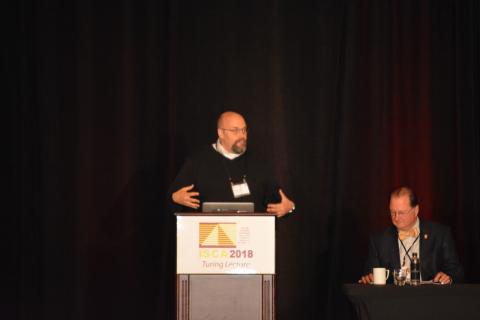Prof. Timothy Sherwood International Symposium on Computer Architecture (ISCA) Panel

Panel On the Implications of the Meltdown & Spectre Design Flaws
Computer Architecture 1.0 specifies the timing-independent functional behavior of a computer, while Micro-Architecture is the implementation techniques that improve performance. What if a computer that is completely correct by Architecture 1.0 can be made to leak protected information via timing, a.k.a., Micro-Architecture? This is done by the Meltdown and Spectre design flaws that were broadly revealed in January 2018. Meltdown leaks kernel memory, but software & hardware fixes exist. Spectre leaks memory outside of sandboxes and bounds checks, and it is scary.
This panel will explore implications of Meltdown and Spectre, especially that the definition of Architecture 1.0 is inadequate to protect information.
Going forward, is it time for Architecture 2.0 and, if so, what is it? If not, do we go forward with micro-architecture best practices and, if so, what are they?
The recent Spectre and Meltdown design flaws have showed us that there are still big gaps in our understanding of how computer processors and computer security work (or more importantly fail to work) together. To more fully understand the ramifications of these problems, the International Symposium on Computer Architecture (ISCA) held a panel where UCSB Professor Tim Sherwood and 4 of his distinguished colleages from around the world discussed the most important issues in front of more than 700 computer processor designers from across industry and academia. While there is no easy answer, the potential for new processor architectures that help with security is more promising now than ever before. Professor Sherwood notes that "Computer security is everybody's problem" and that "it must get the same seat at the table as performance and power" for computer processor designers. Paul Kocher, Ruby Lee (Princeton), Simha Sethumadhavan (Columbia), and Mark Hill (Wisconsin) took questions from the audience and tried to tease out the most most fruitful directions for the computer architecture community to go from here.